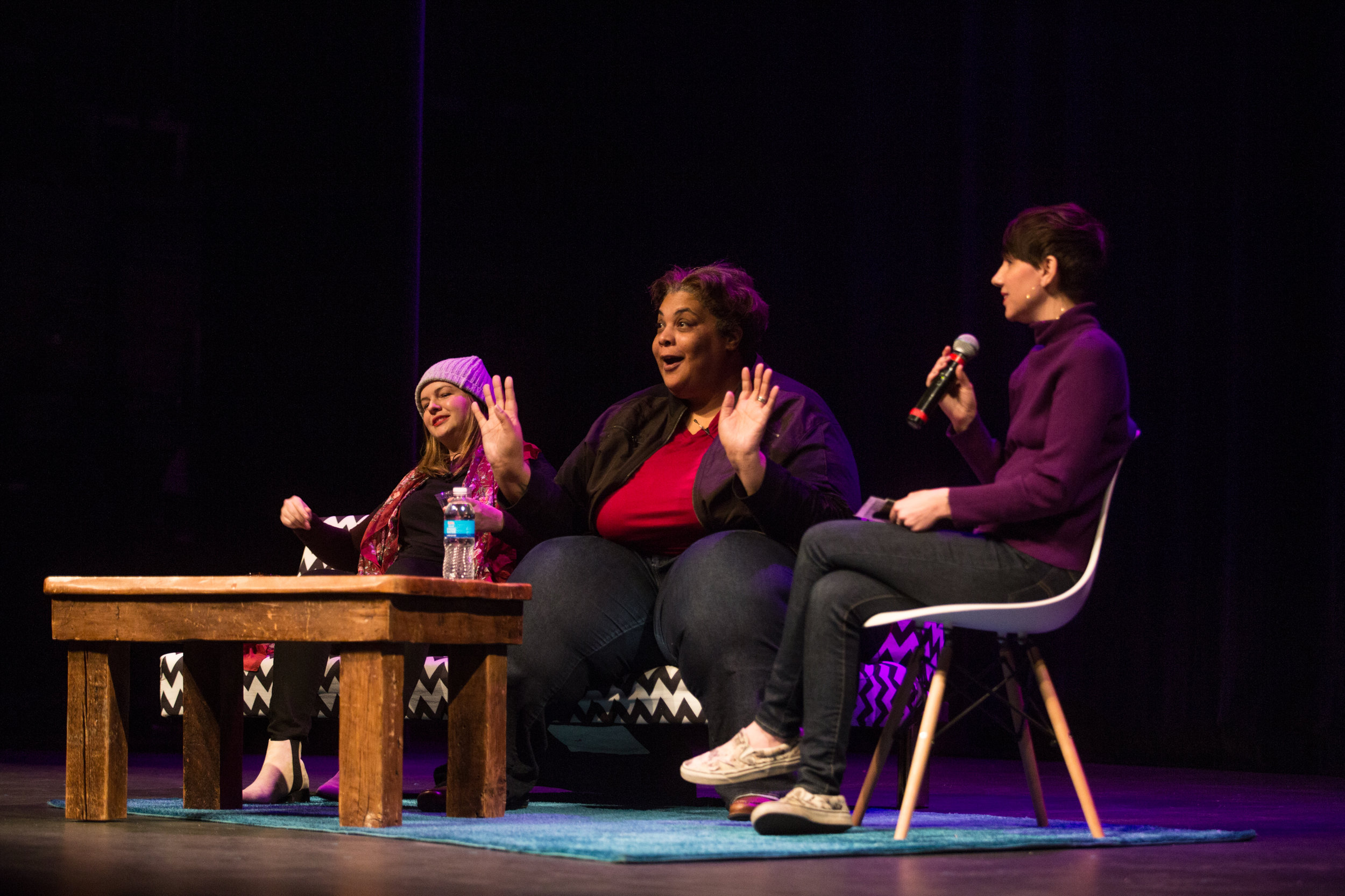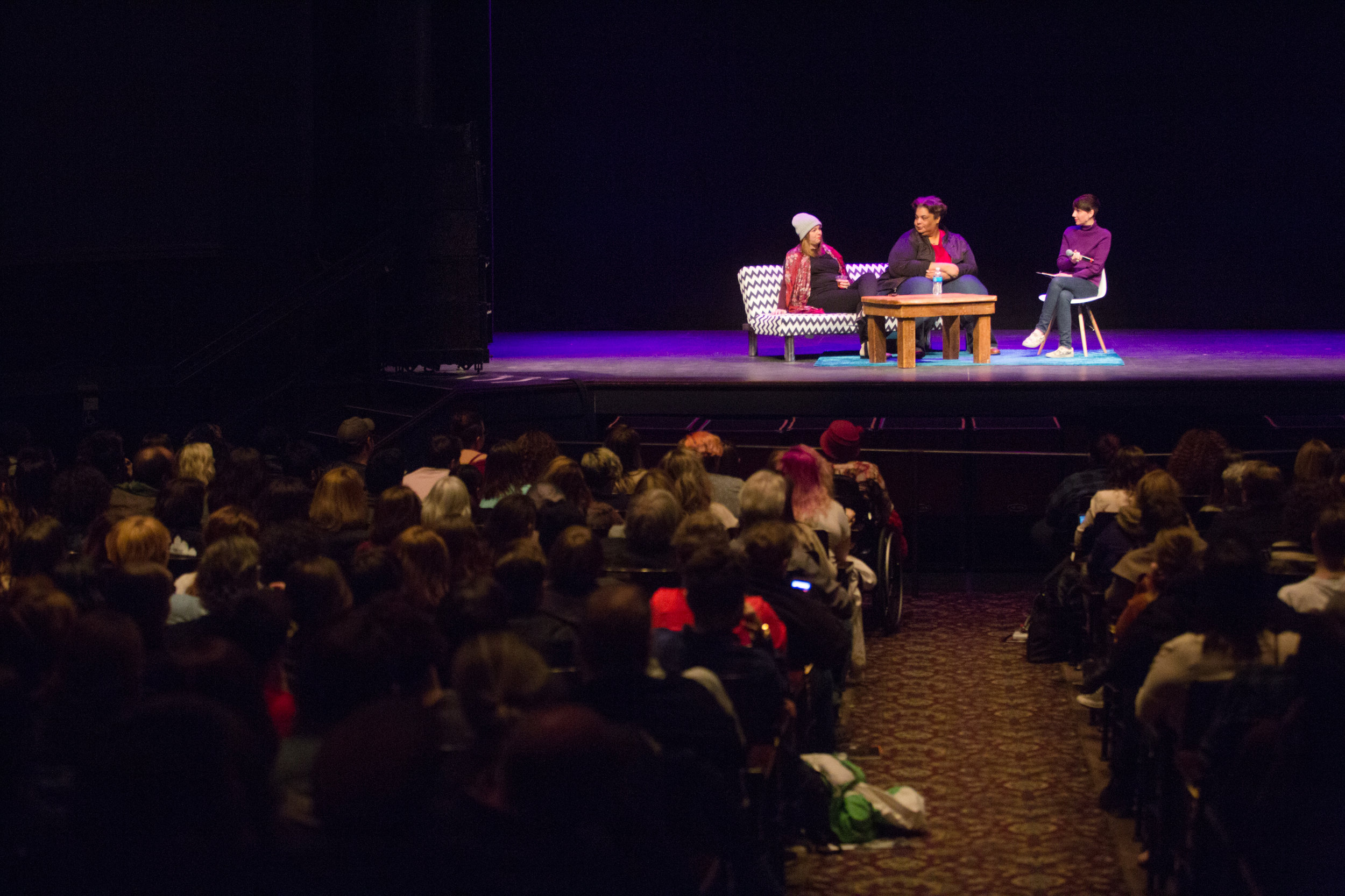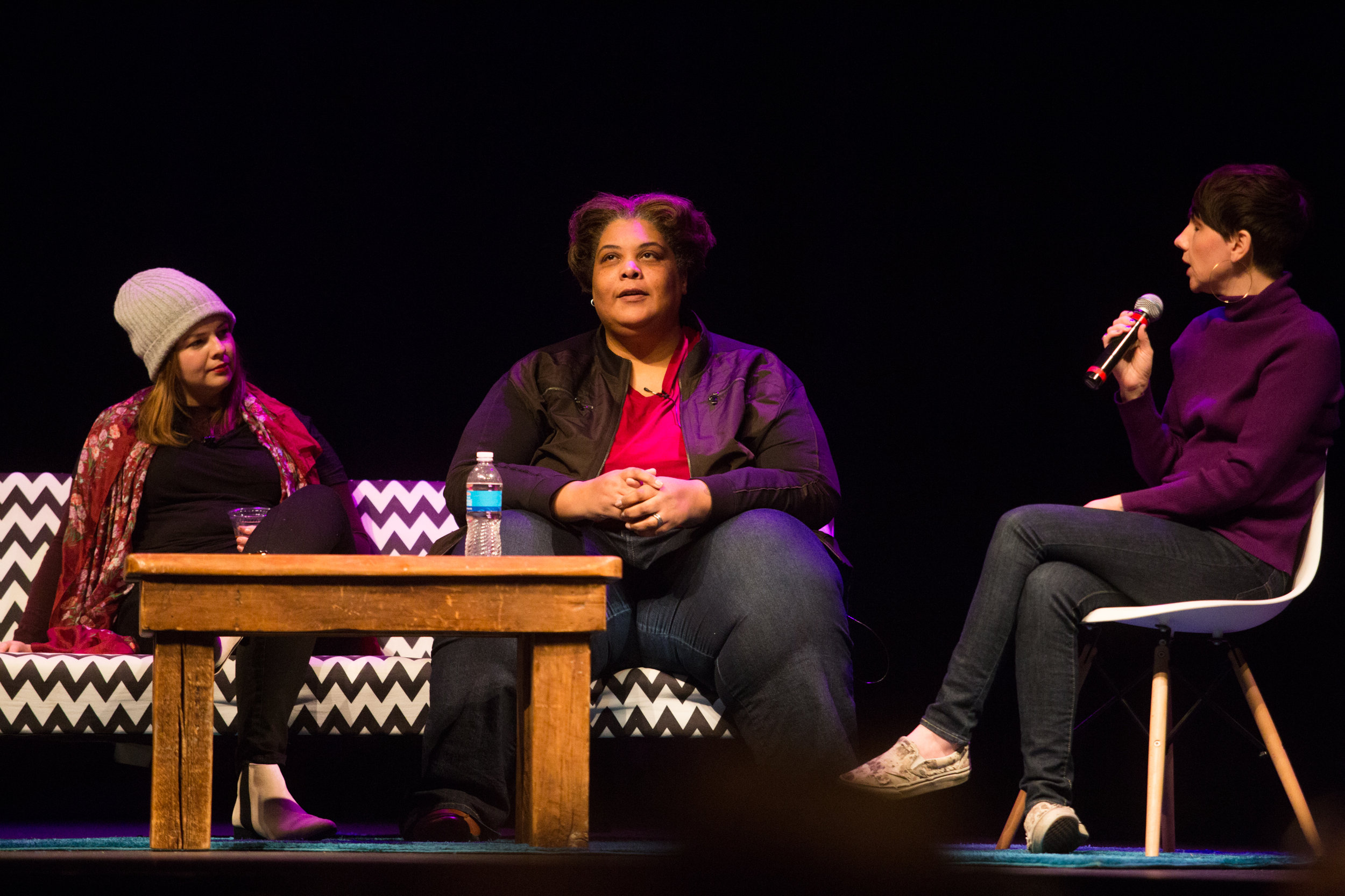A Conversation with Roxane Gay, Amber Tamblyn, and Jessica Hopper
by Lauren Barber
Photos by Mary Mathis
“So much clapping!” Jessica Hopper exclaims as she breezes onto the stage, signaling the beginning of the first Mission Creek show of 2018 held at the Englert Theatre – a conversation between renowned author Roxane Gay, actress and poet Amber Tamblyn, and writing extraordinaire Jessica Hopper. The talk was held Wednesday night.
Sitting on a chevron print couch in front of a packed audience of excited festival goers, Hopper facilitated conversation with Tamblyn and Gay as they spoke about topics from Twitter character limits and trash TV to how they quantify success in the modern age.
The conversation starts with Hopper inquiring how Gay and Tamblyn met. “Craigslist?” she suggests with a laugh. Though not through a personal ad, Tamblyn was connected to Gay through submitting poetry to nonprofit literary arts collective PANK, where Gay is a co-editor. Iowa City brought the two of them together in person as they met during a book festival during a reading at The Mill.
As the exchange continues, Hopper asks, “As women and writers, we get a lot of...advice. What kinds of advice have you gotten in your life?”
Tamblyn speaks first, reminiscing of writing mentors in her past. Their suggestions made her feel like something was wrong because she broke the writing mold he had created. As she continued to grow, she found her own methods, “I was taught that there’s n0 such thing as writer's block. The muse is simply sleeping. The process could take weeks or years, but that’s not a bad thing. I learned to nurture it instead of fight it.”
Advice, solicited or not, that Gay received was more tailored to her as a woman of color. “I was told that my stories wouldn’t work because black people don’t live in the suburbs and I should set it in the ghetto. If I wanted to be a writer I had to write stories that people would believe. So I just ignored the advice.”
Gay’s role as an LGBTQ+ woman of color was touched on a lot during the conversation.
“As a black woman I need to be unapologetic and take risks. I need to be prolific just to get a fraction of the notice of ‘Peter’ or any random white boy out there,” she said, helping the audience understand a bit more about the barriers she faces day to day.
These three women have excelled wildly in their fields. As a midwesterner, Gay started with small dreams and goals.
“I dreamed of publishing a good book that someone would pay me money for. That’s how I quantified success, I never thought beyond that. That was so much lore from New York, some based in truth, some in bitterness, that I didn't dare dream beyond just publishing a book. But now true success to me is about what the writers and mentors I work with achieve.”
Tamblyn started down a different route, beginning to act at 11 years old, “It was hard to be taken serious outside of acting, outside of rooms filled with men that I had to go into and perform for them, and many times get rejected. I never thought that my voice mattered that much after that. Now success is just the freedom and the idea that I can build my own doors to walk though and I’m not boxed in a corner anymore.”
Success looked different for both women. For Gay, success in helping those she works with and for Tamblyn, success in gaining the freedom to be released from the box she found herself in.
By the end of the talk, the audience had not only been enlightened but raised up as a group as they were left with understandings like creative endeavours are as important as academic work and to always take yourself seriously; that self criticism should be encouraged, but self cruelty has no place. Self doubt is poisonous, and going to therapy is completely okay. The future is bright for these women – each has projects from comics to collections of essays to feature films coming out in the near and distant future. Each making their own place in the world and engaging the world in conversation.




